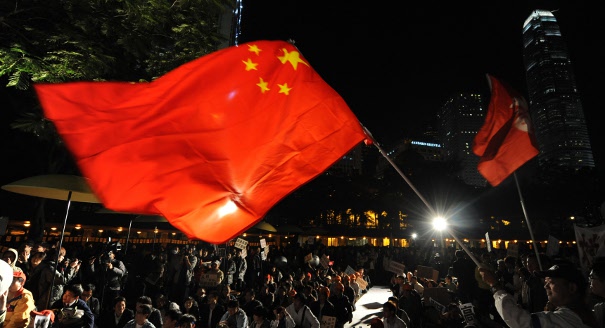Registration
You will receive an email confirming your registration.
Traditional Chinese core values have a strong influence on China’s foreign policy. Zhang Lihua, resident scholar at the Carnegie-Tsinghua Center for Global Policy, spoke about this during an event at the Carnegie Moscow Center. Carnegie’s Dmitri Trenin moderated.
The System of Chinese Harmony
Zhang emphasized the significant role that the notion of harmony plays in Chinese society and its influence on the country’s foreign policy. Chinese harmony is a complete system, she explained, which includes three aspects:
- world outlook and methodology: for example, Taiji philosophy, Yin Yang Dialectics;
- a system of values: these include core harmony, the social livelihood, benevolence, justice, comity, wisdom, honesty, loyalty, and filial piety;
- ideal goals: such as harmony between a human and nature, a human and society, body and mind, and harmony between different people.
Translating Harmony
The English translation of the Chinese word 和谐 (hé xié) doesn’t completely express its Chinese meaning, Zhang said. 和谐 in Chinese means “reasonable and appropriate,” acting in accordance with the objective law and truth. At the same time though, 和谐 means neither absolute peace without any contradictions or conflicts, nor neutrality without unprincipled compromise.
Harmony in Domestic Policy
Ancient Chinese philosophers Laozi and Mengzi (Mencius) claimed that people’s interests are more important than those of the leaders’. As a result, leaders shouldn’t violate the laws of nature and should give more freedom to people. Zhang explained that this ancient interpretation helps demonstrate that the value of political 和谐 (harmony) includes the understanding that the government should be moral, people-oriented, abide by laws of society, and serve the public interest.
Harmony in Foreign Policy
Turning to the idea of political harmony in foreign policy, Zhang argued that it is characterized by a number of key features, including:
- self-improvement (a tendency toward progress) and self-reliance (a tendency toward independence and defending national interests);
- generosity and tolerance: this primarily means a tendency to avoid asserting control over other countries;
- harmony and diversity: Zhang explained that the idea of diversity presupposes two states: balance and violence. The majority of states lean toward harmony and balance, she added;
- modesty: this means that big countries should respect small countries and act modestly, she explained;
- flexibility and wisdom: these features mean that a state should defend its national interests, but not dominate the world.
These characteristics were reflected in “The Five Principles of Peaceful Coexistence” (or Panchsheel Treaty—an agreement between China and India in 1954), in speeches given by former President of China Jiang Zeming, former President of China Hu Jintao, and former Premier of China Wen Jiabao. According to Zhang, they also explain China’s efforts toward cooperation within the SCO and with ASEAN, as well as China’s defense of its national interests in the South China Sea.
Peaceful Development
Zhang connected China’s unwillingness to dominate the global community with Laozi’s idea. Laozi said that “the one who want to take a big leap ends up walking slowly,” because a “big leap” is against the objective law. Thus, Zhang said, China and the United States are in a position to maintain a new model of relations between big peaceful countries. Zhang concluded with the words of Chinese Minister of Culture Cai Wu, saying “China has chosen the road of peaceful development, striving for an internal harmonious society and an external harmonious world.”
